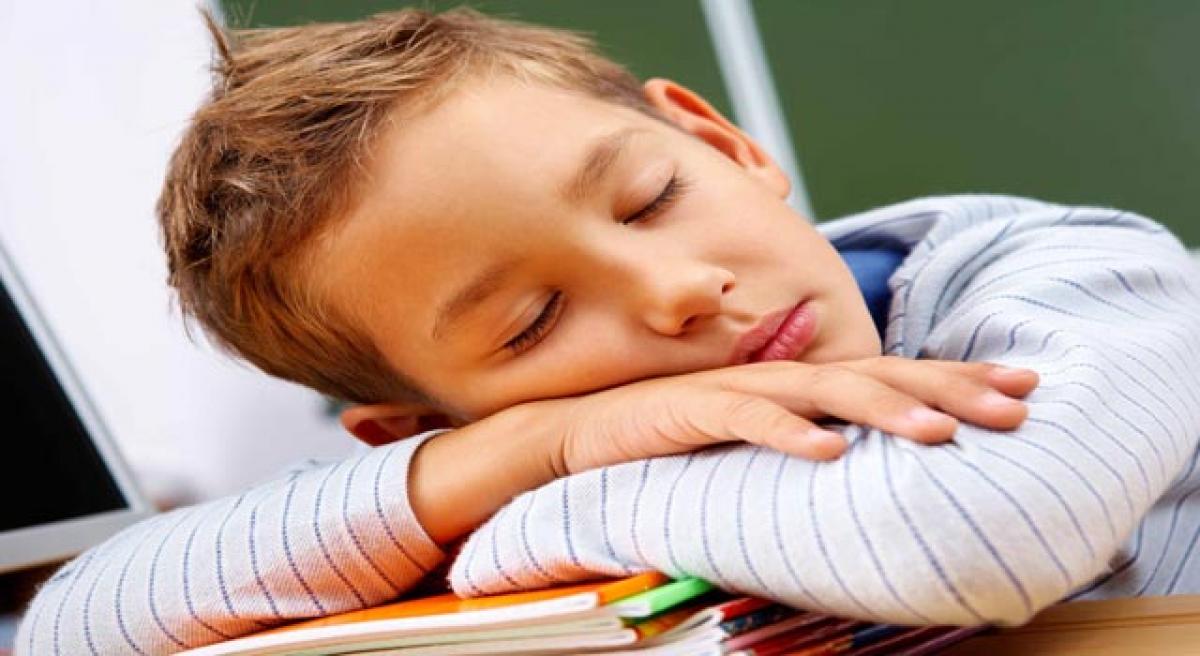Live
- 'Grateful to all': Didi on INDIA bloc chief's role
- HMWSSB completes 50% of 90-day desilting special drive
- Lot to be done to get rid of manual scavenging: SC
- Cong-AAP 'alliance' will not make any difference
- Don’t rely too much on PAs, Gutha cautions lawmakers
- Facial Recognition Tech leads to arrest of impostor
- Voter 'deletion' issue : Kejriwal-led AAP delegation meets EC
- KTR is daydreaming, flays Sridhar Babu
- Red roses given to BJP counterparts
- Dhankhar a govt spokesperson, biggest RS disruptor: Kharge
Just In

Children between age 3 and 7 who do not get enough sleep are more likely to have problems with attention, emotional control and peer relationships, says a study.
Children between age 3 and 7 who do not get enough sleep are more likely to have problems with attention, emotional control and peer relationships, says a study.
"We found that children who get an insufficient amount of sleep in their pre-school and early school-age years have a higher risk of poor neuro-behavioral function at around age 7," said lead researcher Elsie Taveras from the MassGeneral Hospital for Children in the US.
"The associations between insufficient sleep and poorer functioning persisted even after adjusting for several factors that could influence the relationship," Taveras said.
As in previous studies from this group examining the role of sleep in several areas of child health, the current study analysed data from Project Viva, a long-term investigation of the health impacts of several factors during pregnancy and after birth.
Information used in this study was gathered from mothers at in-person interviews when their children were around 6 months, 3 years and 7 years old, and from questionnaires completed when the children were aged 1, 2, 4, 5 and 6 years.
In addition, mothers and teachers were sent survey instruments evaluating each child's executive function - which includes attention, working memory, reasoning and problem solving and behavioural issues including emotional symptoms and problems with conduct or peer relationships, when children were around 7.
Among 1,046 children enrolled in Project Viva, the study team determined which children were not receiving the recommended amount of sleep at specific age categories -- 12 hours or longer at ages 6 months to 2 years, 11 hours or longer at ages 3 to 4 years, and 10 hours or longer at 5 to 7 years.
The study, published online in the journal Academic Pediatrics, found significant differences in the responses of parents and teachers to surveys regarding executive function and behavioural problems in 7-year-old children depending on how much sleep they regularly got at younger ages.

© 2024 Hyderabad Media House Limited/The Hans India. All rights reserved. Powered by hocalwire.com







